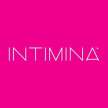INTIMINA Celebrates Women to Get Real About Womanhood. Period.
It’s time to stop period-shaming, and start celebrating womanhood.

Is it just me, or does every year feel shorter than the last?
We live fast-paced lives, bustling from one task to the next. Every day seems to bring new problems or new opportunities. Our entire world can change in a heartbeat: a job offer, a diagnosis, an accident, a proposal. We keep moving forward and keep adapting to changes.
I like to believe that each new day makes me better than I was yesterday. I may not be getting any taller, but I am getting a little bit wiser, a little more compassionate, and a little more brave. It’s taken me a long time to get here, but I’ve reached a place in my life where I am proud of who I am: I speak my truth, and I fight for what I know is right. I know that my struggles are what made me who I am today.
Although my life has been filled with ups, downs, and unexpected changes, one thing has always been consistent: my period.
As women, we’re taught from a young age that periods are embarrassing and gross. We’re taught that you do not discuss your period, and that you hide any signs that it happens. We hide feminine products in the back of a dark drawer, and we shroud wrappers in toilet paper before throwing them in garbage bins. For many of us, these ideas and practices have translated into a belief that having your period-- that being a woman-- is shameful.
I love my period. I love knowing all that my body is capable of-- what is more incredible than creating life? I love the once-a-month reminder that my body is stronger than I sometimes think it is. Of course, period symptoms can create major obstacles. However, I think that this learned resilience is what makes women strong, powerful, and beautiful.
Our world is constantly changing, and I think it’s time for another transformation. It’s time to stop period-shaming, and start celebrating womanhood.
There have always been, and will always be, inspiring women. Whether they’ve shattered glass ceilings or stood up against sexism, women have proven time and time again that they are capable of far more than society gives them credit for. And although they deserve praise too, it’s not just the women leaders who are in the public eye that inspire me. Everyday women are awesome, too.
One of my all-time favorite brands, INTIMINA, is celebrating womanhood with their #WhileBleeding campaign. True to their company’s mission, the campaign seeks to create open and honest conversations about the female experience, and how our periods have impacted our lives.
Every woman’s period journey is a little bit different. For some of us, like Katherine, a period is a reminder of our power. As an avid cyclist, Katherine believes that her period motivates her to be better and to work harder. For Katherine, the period itself is not the obstacle; rather, it is the lack of representation in a male-dominated sport. Natasha, an engineer, reaffirms this sentiment; her work field has made her realize that the stigmatization of women (and periods) is heavily rooted in ignorance. After all, it’s difficult to understand something you’ve never experienced.
This, though, is why open conversations matter. If women don’t honestly express the obstacles we face, we cannot expect men to understand them. Annie, a sprinter, has found that candidly expressing her struggles to her male teammates and coach has helped them to understand the extra challenges she faces once a month. In fact, support is what helps her to push through her symptoms and continue training and competing on her toughest days.
One thing that I’ve learned over the years through intimate conversations with my girlfriends is that no two women have the same experiences or symptoms while on their period. My biggest struggle is always intense cramping. My best friend Emily, though, suffers from lower-back pain. My sister Anna is frustrated by headaches. For many of us, years of experience have taught us to manage our symptoms and continue daily routines without much disruption. We’ve mastered practices that relieve pain, and we’ve found products that prevent discomfort (hello, menstrual cups!).
I am always in awe of women who not only experience severe period symptoms, but who persevere through them. It takes great bravery to share such stories in a world that belittles period symptoms. Clementine, like many women, battles endometriosis. Not only does endometriosis cause extreme pain, but it can also affect a woman’s ability to conceive and have children. Clementine had much trouble carrying to full term, and experienced multiple miscarriages before finally giving birth. Emilie’s diagnosis with PCOS made her feel defeated until a doctor finally prescribed her birth control which has significantly improved her symptoms.
Before finding relief, at only 15, she begged a gynecologist for a hysterectomy. Now, she’s thankful that medicine gave her another route to solace.
One of the greatest problems with our conversations about periods is that we tend to focus on the negative symptoms. Of course it is natural to first think of the pain and discomfort, but I think we need to reframe our perspective. Periods are a sign of health. For many women, a period signifies a fresh start.
From ages 14 to 20, Emily suffered from anorexia. This disorder eventually led to osteoporosis, and Emily did not experience puberty at the same time as most of her peers. It was not until she recovered from anorexia that she got her period for the first time, at 20 years old. For Emily, her period is exciting. It means that she has overcome her greatest struggles, and that her body and mind are healthy again. Her period is a reminder of her resilience.
In our ever-evolving world, women have a louder voice than ever before; however, there’s still a long way to go before we reach true equality. Women should not be stigmatized because of their bodies’ ability to carry children. They should be praised for it. Women in leadership are vital in the fight for equal rights. However, we need to recognize that female leaders are all around us: our mothers, our sisters, our friends, our colleagues. All women are powerful, and therefore all women have the power to evoke change.
I have my period right now. This morning I was in pain, and I was tired. However, when I reached for my Lily Cup One, I remembered that my body is amazing. I remembered that I am strong. This afternoon, I set a personal record on my mile run. My period is something that I have to manage, but it does not control me. It does not change my potential or my worth..
Women can do everything that men can do, and we can do it #WhileBleeding.
About the Creator
Jules Fortman
Modern feminist making moves one pink hat at a time.







Comments
There are no comments for this story
Be the first to respond and start the conversation.